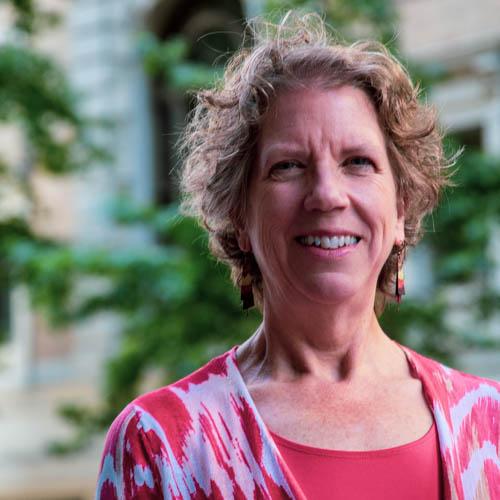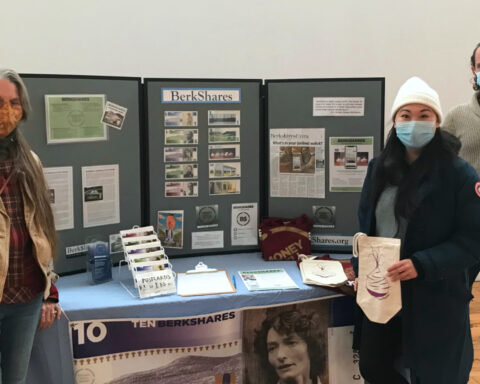Podcast (berkshire-business-outlook): Play in new window | Download
Subscribe: RSS
A new report from Avalara, a leading provider of tax compliance automation for businesses of all sizes shows, year-over-year travel spending has dropped 42% (almost $500 billion) in 2020 and the hotel industry was expecting to have $59 billion less revenue from business travel in 2021 than in 2019. A loss of lodging revenue for hotels equates to a loss in lodging tax revenue for state and local governments leaving local jurisdictions looking at how they can recoup lost revenue.
We invited Pamela Knudsen, distinguished tax compliance and regulation expert in the industry, and an executive with Avalara’s lodging tax division, on the show to talk about these changes and what they might mean to people in the hospitality industry. Give a listen to our conversation via the player (above), or read a rough transcript of our talk below.
This free report (bottom of their page) can also serve as an all-encompassing database of some of the most notable changes that occurred this year and how the hospitality sector will be affected, which can be found on pages 56 – 63.
The most noteworthy points to think about:
- The hotel industry is projected to end in 2021 with $59 billion less business travel revenue than in 2019. Only 25% of businesses polled in September 2021 planned to resume domestic business travel in the next three months.
- Jurisdictions are navigating how to tax streaming services.
There’s a 9% amusement tax on streaming entertainment in Chicago and an excise utility tax on streaming services in Kentucky. Several jurisdictions in California impose a local utility use tax on streaming services, though they’re being challenged for doing so. Many states still haven’t settled on how to tax streaming services.
- Short-term and vacation rental owners and operators may also need to deal with beverage alcohol taxes, consumer use tax, food taxes, parking taxes, sales and use taxes, streaming taxes, and a host of other taxes (e.g., business personal property tax on certain equipment).
- Lodging and occupancy taxes are continuing to change nationally. Many local jurisdictions impose local lodging taxes on top of state taxes. One bill introduced in Michigan in October 2021 would impose a statewide 5% excise tax on short-term rentals; another measure being discussed in the Wolverine State would allow local governments to tax short-term rentals.
- Some states started requiring online travel sites like Airbnb and Expedia to remit taxes on behalf of hosts years ago. Now, local jurisdictions want in on the game. Many local governments today have their sights set on large online travel agencies (OTA) and marketplaces. This is a second wave of compliance regulation, and it’s hitting some businesses hard.
A Conversation with Pam Knudsen
(note: rough transcript only)
GG: And with me on the line is Pam Knudsen. Pam, welcome to the show. Welcome to the Berkshire Business Outlook.
Pam Knudsen: Thank you for having me. It’s a pleasure to be here.
GG: Well, let’s let’s, I guess, get some background on the conversation here. Avalara is a leading provider of tax compliance automation for businesses, and this new report, the annual tax change report. It is. It’s out now. What’s the genesis of this report and what’s the main thrust of it?

Pam Knudsen is an executive at Avalara , leading multi-tax teams including Lodging, Beverage Alcohol, Telecommunications and Sales & Use Tax. She serves as a leading voice in vacation rental tax compliance and regulation, in addition to bringing in-depth experience across software/SaaS technology as well as ERP systems. Pam joined Avalara in 2012.
Pam Knudsen: Well, the main thrust of it overall is that the tax landscape is continually changing, you know, as jurisdictions look at where are missed opportunities for revenue. What is happening with the changes and how we actually just live our day to day lives and do business? And how does that impact them? And again, you know, as their revenue potential is there? So it’s really just underscoring the fact that this changes the tax changes occur across all lines of business and on a regular basis. And it’s really complex and tough to keep track of all of it. It’s tough to deal with it. So it’s important that everybody understands what’s happening, keeps track of it and takes the steps that they need to remain in compliance with both the collection and the remittance of their transactional taxes.
GG: The Greylock Glass serves mostly the the Berkshires of western Massachusetts, some Hudson Valley, some southwestern Vermont, a little bit of the Pioneer Valley Inn in Massachusetts. What what we have here is a situation where a once prosperous mill town economy has had to rapidly pivot to an entertainment and a tourist destination. Now, the Berkshires have always been a tourist destination, but not like we are today. I mean, it is. It is big business and it was booming. Have you ever been to the Berkshires before?
Pam Knudsen: I have not.
GG: Oh, you must.
Pam Knudsen: My plan is to get there someday, yes.
GG: Okay, well, we have about as much theater and arts as you’re going to find anywhere short of New York City in this country. We have some of the best, the best names, the best directors, producers, actors come here for everything from Barrington Stage to the Williamstown Theater Festival. Great work being done. And of course, we have the nation’s largest contemporary art museum, Mass MOCA, which is the Massachusetts Museum. Yes, Museum of Contemporary Art MOCA trips me up every time. So. So we have a lot of a lot of people coming in from New York, New Jersey, Boston points far beyond we. We had come here to check out the Mass MOCA a couple of years back. What what kinds of effects and impacts are? Are these? These hospitality businesses looking to look likely to see.
Pam Knudsen: So one of the things that is happening nationwide is really looking at, specifically when it comes to short term rentals, how short term rentals fit into the overall economic and picture and economy or community picture within a given location. And what we really saw during the pandemic is that a lot of rural areas are a little bit more rural. Areas like the Berkshires really started to benefit in a sense from the sense of people wanted to go someplace that was quieter or low key, but they wanted someplace where they could rent a house or an actual living unit, so they had more control over who they had to interact with. You know, there wasn’t common lobbies, common elevator buttons, those types of things. So what we really saw in the pandemic is kind of an uptick in short term rentals and especially those in areas that were accessible by car or RV or that didn’t require a plane, which the Berkshires absolutely is that for the New England and Upper Northeast area. So we saw that and what that has done is that, you know, brought in short term rentals that made those pieces more attractive, having a short term rental. And so communities are starting to really take a look at that and try and understand the impact of those short term rentals. And also, you know, balance out any concerns that long term residents may have. So there’s a lot of around the country, there’s a lot of conversation about regulations and short term rentals. And how do we go about doing this in a way that addresses everybody’s concerns and still continues to bring that boom to the economy that comes with having more tourists that are able to come in?
GG: The hotel industry in the Berkshires is not what it used to be, I mean, we do have some, you know, some some chains, you know, various versions of Marriott and and so forth. The. The Red Lion Inn, which is one of the nation’s historic inns in Stockbridge, Massachusetts, is owned by Main Street Hospitality. That has and it has been expanding all over the New England. They’ve got a great complex. They’ve opened up in Newport, they are there in North Adams. They’re all over the place. They are, you know, a small chain with exclusive properties. You know, you wouldn’t just, you know. This wouldn’t be the kind of thing that you pull off the highway to get a nice night’s rest in there, more high end. And then of course, we have, like I said, the chains and we have the like you mentioned to the bed and breakfast. Well, there’s the bed and breakfast set and then there’s the Airbnb. So it’s a really diverse landscape. Do you see any particular winners or losers with this new tax structure?
Pam Knudsen: No, not really, I think it’s really just everybody, you know, kind of staying in compliance and making sure that they understand what the requirements are. You know, we are seeing some additional regulations regarding short term rentals. In some cases, it’s taxes so that the tax base is a little bit more similar to what it is for a hotel scenario. In some cases, it’s making sure that there are regulations regarding parking or noise trash those types of things so that they make sure that they remain good neighbors, you know, and that there’s not overwhelmed with, you know, 10 people staying there and they all have a car and there’s not parking available so that many people. So, you know, there’s a lot of changes along those lines that we’re seeing across the country from a regulation standpoint. Again, all of the in the effort of saying, Hey, we want to make sure that short term rentals remain good neighbors with the long term residence.
GG: Well, that makes sense. I can tell you from experience that there are some neighborhoods where you would have no idea that there are a couple of Air BnB type, you know, destinations and there are other neighborhoods that I’ve seen where it’s very obvious that the the proprietors are not as fastidious about these things. So it probably makes sense because, you know, it’s an industry that could shoot itself in the foot if it’s if it’s not careful. Let’s talk a little bit about jurisdictions. This is one of things. The points the main points was brought up. Navigating how to tax streaming services. Now this is fascinating because in. This was 2021. Bill H. This is a Massachusetts State House 130. An act relative to a streaming entertainment operator’s use of the public rights of way. And then there was an additional one that was talking about adding a five percent tax on streaming services. This is a real challenge for this area because, as I said, we have so much live performance here. Do you see? And we’re not the only place I’m sure we can go to Los Angeles. There’s a lot of live performance. Most of our live performance was shut down and move to digital. Do you think that this, the bills like this or changes like this were a response to people moving live performance to digital the digital venue?
Pam Knudsen: That may have played some impact. I think it’s more of just the fact that, you know, as a whole, we’re moving as a society. You know, technology has allowed us to move to a more streaming service orientation even for. You know, even for your average just homeowner, there’s a lot more things that they may stream than they used to. You know, instead of cable or dish, you know, this satellite system or whatever. So, you know, I think it’s really just looking at this and saying, Hey, streaming is here to stay. It’s not going to go away. You know, companies like Apple TV, I mean, there’s just so many different services out there. Amazon Prime, Netflix, these are all streaming services that have just continued to grow in popularity. And it becomes a question to say, Do we need to really look at those streaming services as they’re coming in to places like hotels, short term rentals and really figure out how do we how do we tax those kind of periodic usage of those streaming services?
GG: That can then make that makes it makes a lot of sense. And it’s something that can more easily be good because, well, because it’s a streaming service that you have to subscribe to. Unlike, you know, local events, although I you know the I’m just looking sort of scanning this this legislation, it looks like it leaves open the door to the possibility of of them being able to tax live events, live streaming events from what would normally be live in-person venues. So that’ll be interesting to find out. Because let’s face it, you might come to the Berkshires and discover that you know you’re going to go leaf peeping in the fall and then you’re going to have dinner and you’re going to go see a show. Well, maybe they’ve had to cancel the show. And so you can go back to your hotel and you can watch it on on a nice big flat screen TV or something. That’s that’s something we probably have an answer to, but I’ll be watching that. What other what other points of this Valera’s tax change report? Do you think folks in a place like the Berkshires need to be thinking about? There are a number of points and we can’t go over them all. But what really sticks out to you?
Pam Knudsen: I think the things that stick out to me is one making sure that you are keeping track of what’s happening locally from a legislation standpoint and get involved to understand what’s happening and understand the bigger picture here that this is not. This is not a single issue kind of scenario. There is a very broad scope that needs to be taken into consideration that has everything to do from, you know, the boost to the economy, from having tourists come in. What is the impact on local retailers around that of having additional tourists come in? And if you start to put regulations in place that discourage that, what is the downside of that impact? But also understanding that, you know, more tourists coming in, you know, does that what does that do from a housing standpoint? So there’s so many facets to this, but it’s really making sure that you’re taking a holistic view of this and not focusing in on just one area because they’re all connected. And so understanding that connection and understanding how to work with that and doing that balancing, it’s really a critical piece and really starting to take a look at what’s happening in other parts of the country to see how other areas are starting to address this or looking to address this, to see get ideas, what works, what doesn’t work, what makes the most sense for your particular community?
GG: Yeah, I wish the more you know, community decision makers would spend some time looking outward. Sometimes there are answers that have already been devised and sort of tested in other other regions. I mean, we’re not the like, I said. We’re not the only place that has a lot of live entertainment, a lot of seasonal tourists. I bet you that there are some folks who are coming up with some great, great solutions. Before I let you go, why don’t you tell me a little bit about Avalor and what they do that can help businesses keep in compliance and what are the services they offer?
Pam Knudsen: So Avalon, as a company, our headquarters is based in Seattle, Washington, and we handle what we call transactional tax. So that’s everything from sales and use tax to lodging tax, telecommunications, tax, heating, beverage, anything that is transaction based. That’s the type of tax that we handle. And we do everything from the calculation to letting you know what the correct rate is that should be charging all the way through to the filing, the filing and remitting of your taxes to the appropriate local jurisdictions. So we really help businesses, property owners, et cetera, remain in compliance with the rules and regulations within their communities so that they can continue to contribute and not put themselves or their businesses at risk from being non-compliant. So that is our specialty is really looking at how do you handle your transactional tax in the most effective, efficient and compliant way possible?
GG: Got it. Got it. It sounds like one of those things that a lot of people could overlook, and until maybe they wish they hadn’t, right? Not to put too fine a point on it anyway. Pamela Hudson, I want to say thank you so much for joining us on the Berkshire business outlook. I know that a lot of people are going to find this interesting, and I will put a link to the report as well. In the show notes that people can take a look for themselves and read up on some of the things that we didn’t get to talk to. Stay safe, stay well. And remember the Berkshires — we’re here for you.
Pam Knudsen: I am looking forward to visiting thank you very much for having me. Take care, bye bye.






